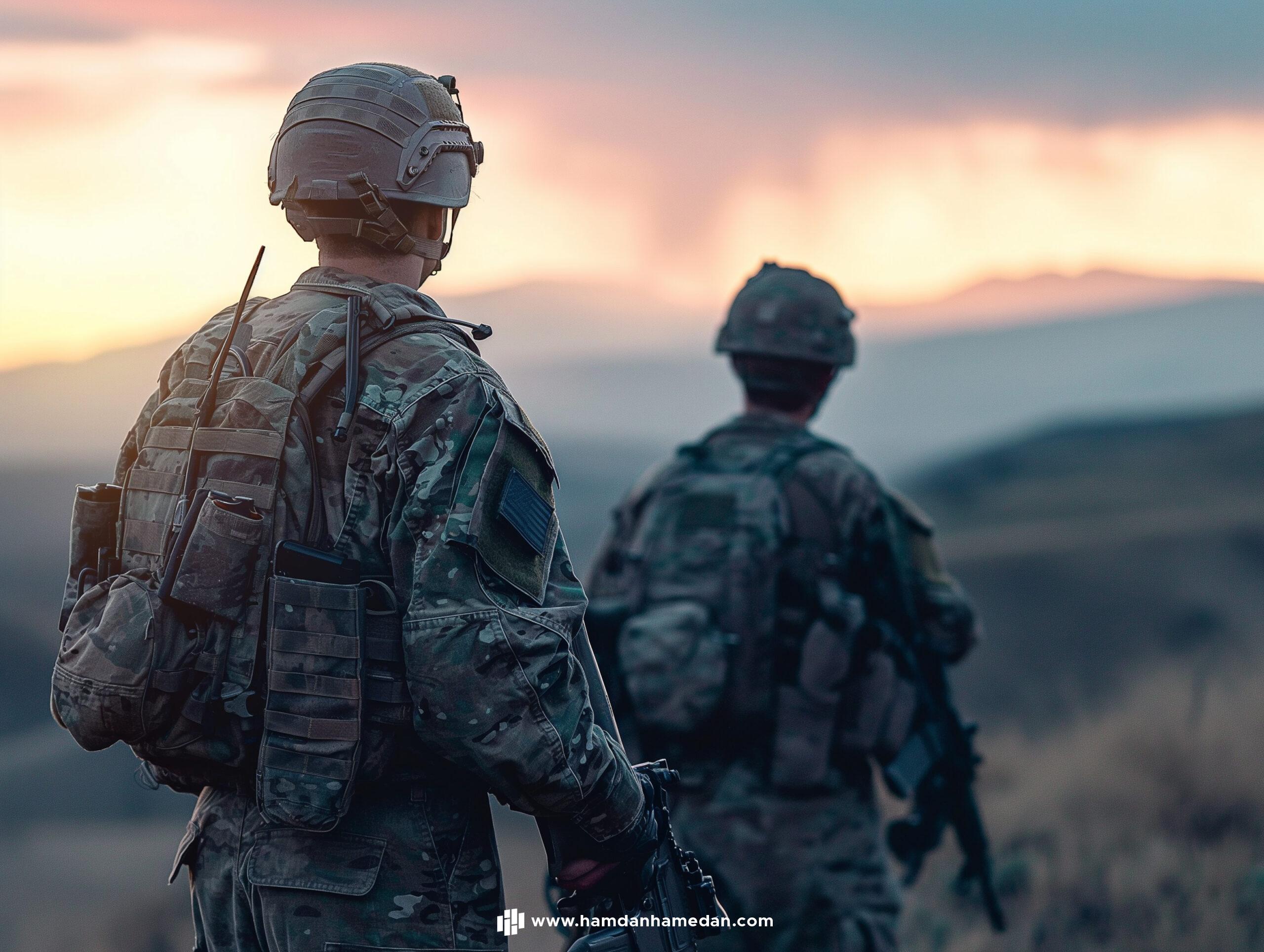
Following the September 16, 2007, gunfire incident in Baghdad, in which Blackwater USA personnel are accused of the unprovoked killing of 17 civilians, this private security contractor has earned a new nickname: the Butcher of Baghdad. Blackwater earned this nickname not because of a sudden and one-time involvement in the callous killing of Iraqi civilians but because of its repeated involvement. The September 16 incident was just one addition to the long list of disastrous incidents involving Blackwater personnel.
Here are a few examples: On October 25, 2005, Blackwater personnel fired gunshots that struck and severely wounded a civilian bystander. They decided to leave him on the ground and continue their convoy. On September 24, 2006, a Blackwater team drove on the wrong side of the road, causing a civilian driver to lose control and hit a phone pole. The team continued their convoy without helping the burning vehicle’s occupants. On December 24, 2006, a drunken Blackwater contractor killed a bodyguard of the Iraqi vice president. The individual was only discharged from the company and returned to the U.S. as a free man. This incident created a furor within the Iraqi government and its people, who could not understand how a foreigner could kill an Iraqi and return to his country as a free man. Both the Iraqi government and its people demand accountability for Blackwater’s misconduct. In a country where what the government wants and what the populace demands are rarely met, this consensus needs to be taken into high consideration by the U.S. government.
Since 2005, out of 195 incidents in which shots were fired in Iraq, 85 percent were initiated by Blackwater personnel. Based on Blackwater’s own testimony, 16 Iraqi casualties—excluding the September 16 incident—were reported. Not surprisingly, Blackwater’s misconduct has undermined U.S. efforts to win the support of the Iraqi people.
Considering these facts, one might ask, “Why does the U.S. government not expel Blackwater from Iraq?” There are arguably three reasons. First, the U.S. military in Iraq is overstretched and cannot provide protection for all U.S. diplomats. Second, Blackwater is considered by many military analysts to be the most powerful private security contractor working in Iraq, tasked with keeping the most hated U.S. occupation officials alive in the most dangerous cities and zones (i.e., Baghdad, Fallujah, and Iraq’s Red Zones). Thus far, Blackwater has never lost a client in Iraq. Third, Blackwater is owned and run by people who have strong ties to the current U.S. government. For instance, Blackwater’s owner, Eric Prince, a former Navy SEAL, is a major benefactor to President Bush and the Republican Party. Also, Blackwater’s Vice Chairman, Cofer Black, was a former Director of the CIA’s Counterterrorist Center.
Blackwater’s misconduct is arguably facilitated by a flawed law currently in place in Iraq—Order 17, Section 4. This law grants immunity to all private contractors working for the U.S. in Iraq, making them unaccountable for their misconduct. Power without justice is violence. Consequently, these factors indirectly and inadvertently permit Blackwater personnel to act above the law, leading to misconduct. Therefore, one of the most viable ways to prevent future Blackwater misconduct is to make them accountable for their actions by subjecting them to U.S. civilian law.
Nevertheless, the current administrations have been reluctant to subject all contractors in Iraq to U.S. civilian law. Instead, they have decided to retain Order 17 and implement closer monitoring. Closer monitoring means that in addition to video cameras in security vehicles, State Department agents would also be included in Blackwater convoys to closely monitor the activity of Blackwater personnel. However, this policy neglects the essential factor of accountability, which is arguably only second to the killings themselves as a source of widespread resentment. Most importantly, although closer monitoring will increase Blackwater personnel’s awareness that they are under surveillance, the lack of accountability will be insufficient in preventing future misconduct. Surveillance without the capacity to penalize will be unlikely to deter misconduct. Retaining immunity for all private contractors implies maintaining the image of U.S. contractors being above the law, which could undermine Iraq’s sovereignty. Moreover, this policy is costly for the U.S. government because it entails incurring more money, time, resources, and agents for Blackwater operations. It means that more taxpayers’ money will be allocated to already costly Blackwater operations.
On October 4, 2007, the House passed a bill that would make all private contractors working in Iraq and elsewhere subject to U.S. civilian law, but it still requires the President’s approval. Subjecting all private contractors to U.S. civilian law will automatically nullify Order 17, Section 4. It means that all private contractors working in Iraq would no longer have immunity from prosecution. Accordingly, all private contractors would be forced to respect and follow the law, preventing misconduct. Equally important, subjecting all private contractors to U.S. civilian law would make them accountable for their actions, aligning with the demands of the Iraqi government and its people. Fulfilling these demands will be instrumental in garnering Iraqi support
If you are still in doubt that subjecting all private contractors to U.S. civilian law is a viable option, consider the following scenario. Suppose Dick Cheney, the Vice President of the U.S., was visiting Indonesia, and his bodyguard was killed by a drunken bodyguard hired by the Indonesian government. The next day, the Indonesian government dismissed the incident and smuggled the bodyguard out of the country, allowing him to live freely. What would the U.S. government and its people demand? Undoubtedly, they would demand the culprit be brought to justice. This is a completely acceptable and rational demand. Similarly, the Iraqi government and its people demand justice and accountability for any misconduct by Blackwater personnel, and they should justly be able to get it. This is called implementing law and order. Furthermore, it would be completely counterproductive if the U.S. tries to preach to Iraq about democracy, equality, and justice while an element of U.S. presence in Iraq appears to be above the law. In the words of Robert Baer, a former CIA agent, “Do we let Iraqi Embassy private security contractors race around Washington or New York, machine guns sticking out the window, to prevent carjackings?” Lastly, the dead—the Iraqi civilian victims of Blackwater—cannot cry out for justice; it is the duty of the living—you and me—to do so for them. Let’s support the House’s bill regarding subjecting private contractors in Iraq to U.S. civilian law by voicing it.
Disclaimer
This paper, titled “Blackwater USA: The Butcher of Baghdad,” was written in 2007 as an opinion editorial (op-ed) and was originally published in an internal campus bulletin. Since then, many changes have occurred, including shifts in the geopolitical landscape and the status of various organizations mentioned. For instance, Blackwater has since rebranded multiple times and is now part of Constellis Group. Additionally, legal actions have been taken against Blackwater personnel, including convictions and later pardons issued by President Donald Trump in 2020.
Significant legislative efforts have also been made to address the accountability of private military contractors. In 2007, the U.S. House of Representatives passed a bill to make all private contractors working in Iraq subject to U.S. civilian law, aiming to nullify Order 17, Section 4, which had granted them immunity from prosecution. This context reflects the evolving legal and political landscape surrounding private military contractors.
This document is provided solely for educational purposes and may not reflect the most current information or perspectives. The views and analysis presented are based on the author’s understanding and sources available at the time of writing. All research was conducted using publicly available sources. Readers are encouraged to consult more recent sources for updated information and insights. The content should not be interpreted as an endorsement of any viewpoint or as a comprehensive analysis of current events.




